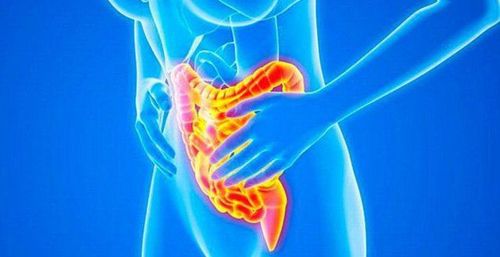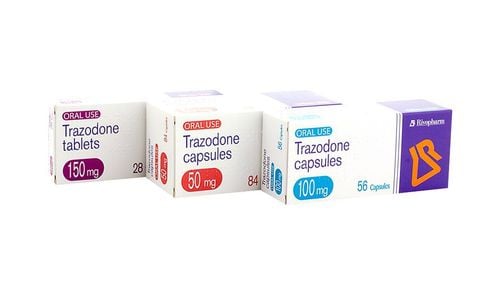This is an automatically translated article.
A good night's sleep plays an extremely important role for human health. In fact, sleep is just as important as eating healthy and exercising regularly. However, with today's modern life, there are many factors that affect sleep, such as work pressure....1. Poor sleep makes you gain weight
Poor sleep is strongly associated with weight gain. People who don't get enough sleep tend to gain significantly more weight than those who get enough sleep. In fact, short sleep duration is one of the main factors leading to obesity.In one study, children and adults who did not get enough sleep were associated with a higher risk of obesity, 89% and 55% respectively. The effect of sleep on weight gain is thought to be due to changes in appetite-regulating hormones and sleep patterns.
If you are trying to lose weight, getting a good night's sleep is extremely important. Several studies have shown that inadequate sleep increases ghrelin and decreases leptin. This is likely to increase appetite.
2. People who sleep well tend to consume fewer calories
Studies show that sleep-deprived people have more cravings and tend to consume more calories. Sleep deprivation alters the regulation of appetite hormones and this is thought to be responsible for the limited ability to regulate appetite. Not getting enough sleep causes higher levels of ghrelin, the hormone that stimulates appetite, and lowers levels of leptin, the hormone that suppresses appetite.In order to provide the necessary energy to maintain alertness, when you do not get enough sleep, eating more is a physiological adaptation. Nowadays, food is very rich and varied, you have easy access to all kinds of food, so it is easy for you to consume more calories than you need.
3. Good sleep improves focus and productivity
Sleep is important for various aspects of brain function, including cognition, concentration, productivity, and performance. All of these are negatively affected by sleep deprivation. A study conducted with interns showed that interns on a traditional schedule with working hours lasting more than 24 hours caused more serious health effects than interns who were scheduled to work for more than 24 hours. get enough sleep.Sleep deprivation can negatively impact some aspects of brain function to the same extent as alcohol intoxication.
On the other hand, problem solving skills and memory performance in children and adults are shown to improve when you get enough sleep.

Thiếu ngủ có thể ảnh hưởng đến sự tập trung, năng suất và hiệu suất công việc
4. Good sleep can maximize athletic performance
Good sleep has been shown to enhance athletic performance. In a study done in basketball players, long sleep was shown to significantly improve speed, accuracy, reaction time, and mental health.Less sleep is also associated with poor exercise performance and limited functional capacity in older women. A study of more than 2,800 women found that sleep deprivation may be linked to slower walking, decreased balance, and more difficulty performing independent activities.
Sleep quality will be reduced due to disturbed sleep time making physical function worse. So, to maximize athletic performance, you need to get a good night's sleep.
5. Poor sleepers have a higher risk of heart disease and stroke
The quality and duration of sleep can greatly affect health. These are factors that are thought to contribute to chronic diseases, including heart disease. A review of 15 studies found that people who don't get enough sleep have a much higher risk of heart disease or stroke than those who get seven to eight hours of sleep a night.6. Sleep affects glucose metabolism and type 2 diabetes risk
Research shows that sleep deprivation affects blood sugar levels and reduces insulin sensitivity. In a study done in young, healthy men, sleeping as little as four hours per night for six consecutive nights caused symptoms of prediabetes. These symptoms should improve after 1 week of increased sleep time.Poor sleep habits also carry the risk of adverse effects on blood sugar.
People who sleep less than six hours a night for an extended period of time have been shown to have an increased risk of type 2 diabetes.
7. Poor sleep is linked to depression

Những người bị rối loạn giấc ngủ như mất ngủ hoặc ngưng thở khi ngủ do tắc nghẽn cũng có tỷ lệ trầm cảm cao hơn đáng kể so với những người bình thường
Poor sleep is even associated with an increased risk of death by suicide. People with sleep disorders such as insomnia or obstructive sleep apnea also had significantly higher rates of depression than the general population.
8. Sleep Improves Your Immune Function
Even short-term sleep loss has been shown to impair immune function. A two-week study followed the development of the common cold after giving patients nasal drops for a cold virus. Experts found that people who slept less than 7 hours were almost three times more likely to catch a cold than those who slept for 8 hours or more.If you often get colds, it's best not to stay up late and make sure to get enough sleep every night. Getting at least 8 hours of sleep can improve your immune function and help fight the common cold. Eating more garlic can also help.
9. Poor sleep increases inflammation in the body
Sleep can have a big effect on inflammation in your body. In fact, sleep loss is known to trigger markers of inflammation and cell damage.Poor sleep is strongly associated with persistent inflammation of the digestive tract, in disorders known as inflammatory bowel disease. Research shows that sleep-deprived people with Crohn's disease are twice as likely to have a relapse than patients who get a good night's sleep.
Poor sleep is strongly associated with inflammatory bowel diseases and may increase the risk of disease recurrence. Researchers are even relying on sleep assessments to help predict treatment outcomes in people with long-term inflammatory problems.

Giấc ngủ kém có liên quan mạnh mẽ đến các bệnh viêm ruột và có thể làm tăng nguy cơ tái phát bệnh
10. Sleep affects emotions and social interactions
Insomnia reduces the ability to interact socially. Poor sleepers have a reduced ability to recognize expressions of anger and happiness. Researchers believe that poor sleep affects the ability to perceive signals and process information related to emotions. Lack of sleep can impair people's social skills and ability to recognize emotional expressions.In summary, along with nutrition, regular exercise and good sleep are the most important factors for the health of all of us. You can't achieve your best health if you don't know how to take care of your sleep.
Vinmec International General Hospital with a system of modern facilities, medical equipment and a team of experts and doctors with many years of experience in medical examination and treatment, patients can rest assured to visit. examination and treatment at the Hospital.
To register for examination and treatment at Vinmec International General Hospital, you can contact Vinmec Health System nationwide, or register online HERE.
Reference source: healthline.com
SEE MORE
sleep disorders - the obsession of the elderly 8 ways to improve sleep quality for old age What drugs treat insomnia?













